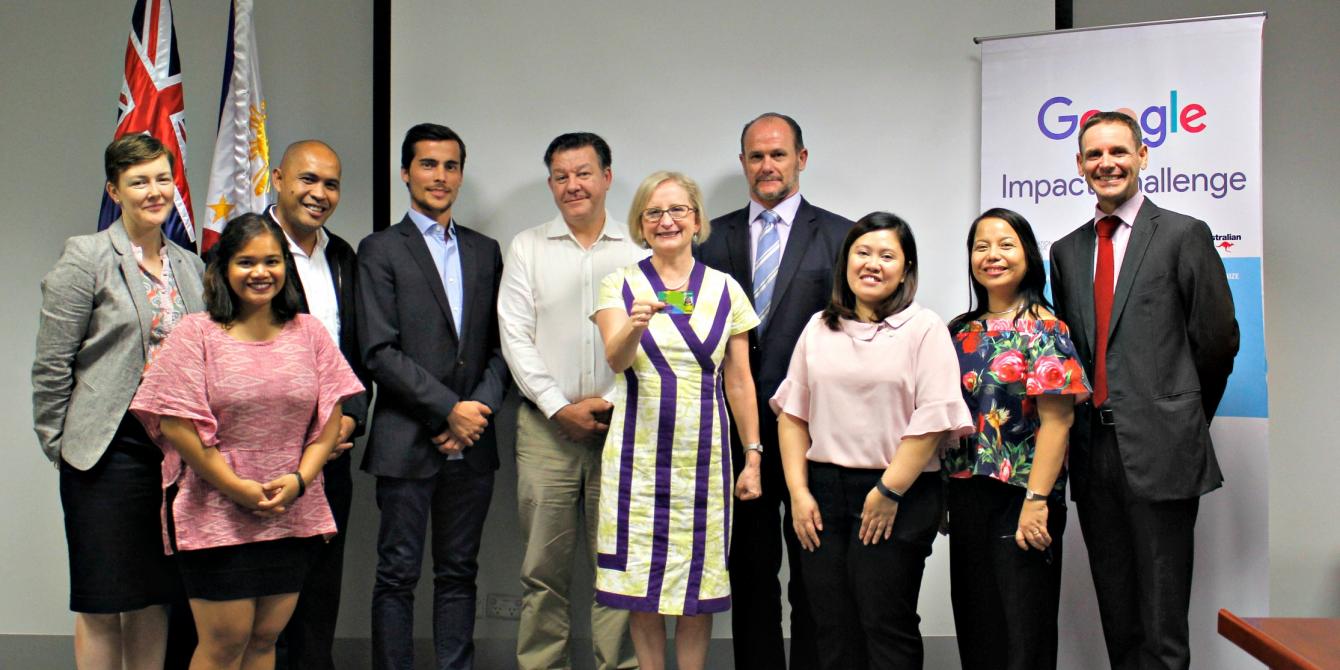Australia supports financial inclusion of marginalized poor

The Australian Government in partnership with Google.org has awarded the Google Impact Challenge “Technology Against Poverty” Prize to Oxfam. The Challenge is conducted worldwide to support local non-profit innovators to use technology to solve key social and development problems.
“The I AFFORD Project highlights an innovative partnership between the private sector, government and non-government organizations, to address enduring poverty challenges using technology,” said Australian Ambassador to the Philippines Amanda Gorely, who launched the project on 16 May 2017.
The Inclusive and Affordable Financial Facilities for Resilient and Developed Filipinos Project or I AFFORD Project aims to connect poor Filipinos to affordable digital financial services, to help households manage their finances and encourage them to invest in micro-social and business insurance to protect their assets, livelihoods, and small businesses. It also helps the Government of the Philippines and the Bangko Sentral ng Pilipinas (BSP) in their drive to bring the financial system closer to the financially underserved and unserved Filipinos. In the Philippines, only 31% of adults have bank accounts. Of this 31%, only 38% are women.
Oxfam partners with PayMaya, a pioneer in mobile payments in the Philippines; and Visa Inc., a global payments technology company, to deliver this project in cooperation with BSP.
Through the “Technology Against Poverty” prize from the Australian Government and Google, up to 50,000 poor people living in areas with the lowest access to banks and other financial services will be connected to a digital platform that can be used to save money and make cashless transactions. At least 60% of the beneficiaries will be women in rural communities in Visayas and Mindanao.
Learning from the lessons of Super Typhoon Haiyan in 2013, Oxfam sought to implement a safer and more efficient way of disbursing cash aid during emergencies. This led to a partnership with private sector groups and the local government for a pioneering electronic payment system that was first rolled out during the humanitarian response for Typhoon Rammasun in Tacloban City in December 2014.
The platform not only revolutionized traditional cash aid transfers but also provided an entry point for financial inclusion. For the first time, poor women and men, mostly farmers or fisherfolk, can benefit from cashless transactions in purchasing goods from any local community stores and depositing or withdrawing money in the nearest community financial centres or Automated Teller Machines.
“Access to digital financial services encourages families to save money and makes households better prepared for financial shocks such as devastation caused by disasters. We look forward to replicating the system on a larger scale and continuing to utilise digital financial inclusion as a tool for poverty alleviation, with women at the forefront of all our efforts,” said Oxfam in the Philippines Country Director Daniel Sinnathamby.
For more information, please contact:
Genevive Estacaan – GEstacaan@oxfam.org.uk; +63 905 320 2191

 Follow us on Facebook
Follow us on Facebook Instagram
Instagram Follow us on Twitter
Follow us on Twitter LinkedIn
LinkedIn